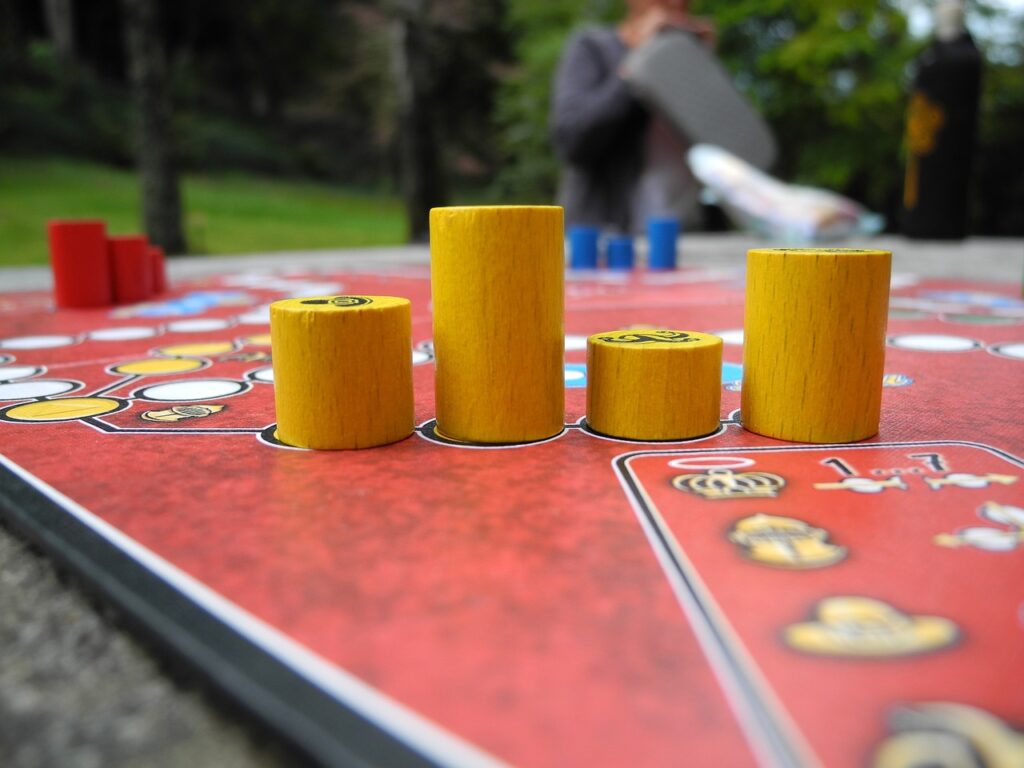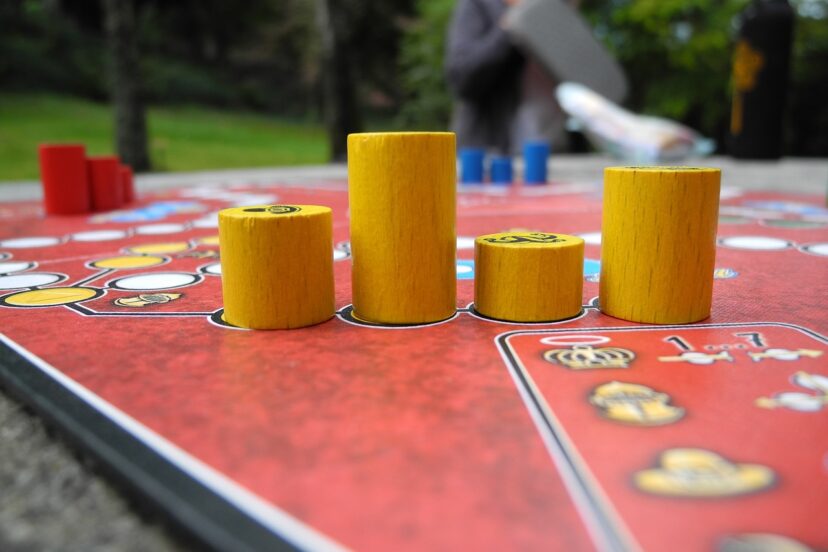What Are The Best Games For Family Game Night?
Gathering the family together for a game night can be one of the most enjoyable and fulfilling ways to bond. In “What Are The Best Games For Family Game Night?”, you’ll discover a curated list of exciting and engaging games that promise fun for all ages. Explore options that range from classic board games to modern interactive adventures, ensuring everyone, from kids to grandparents, finds something they love. Dive in to find the perfect games that will create unforgettable memories and hours of laughter for your family game night! Have you ever wondered what the best games are for family game night? If you’ve been searching for the perfect games to gather your loved ones and have a blast, you’re in the right place. Family game nights have a magical way of bringing everyone together, creating laughter, and making lasting memories. But with so many options available, choosing the right game can be tricky. Let’s explore some of the best choices to ensure your family game night is a roaring success!

Why Family Game Night?
Before diving into the list of games, it’s essential to understand why family game nights are so special. They aren’t just about play; they offer countless benefits for the entire family. These moments help foster closer relationships, improve communication, and create a sense of belonging. Plus, they can be a fantastic way to unwind from the day’s stresses and indulge in some good old-fashioned fun.
Emotional Connection
Playing games together strengthens emotional bonds among family members. The shared experiences, laughter, and even friendly competition can enhance your relationships and deepen the connection between everyone.
Cognitive Benefits
Many games are designed to challenge your brain, improve critical thinking, and enhance problem-solving skills. Whether you’re strategizing in a board game or figuring out a tricky puzzle, these activities stimulate your mental faculties.
Learning Opportunities
Games often come packed with learning opportunities. Whether it’s reinforcing vocabulary in word games, understanding numbers and money in games like Monopoly, or developing strategic thinking in Chess, there’s always something to learn.
Board Games
When you think of family game night, board games probably come to mind first. They are timeless, and there’s a game out there for every family’s taste and age group. Here are some of the top board games to consider.
Classic Games
Some classic games have stood the test of time and for good reason. They’re easy to learn, entertaining, and suitable for multiple age groups.
Monopoly
Description: Monopoly is a classic real-estate board game where you buy, sell, and trade properties to build an empire and bankrupt your opponents.
Why It’s Great: It teaches money management and negotiation skills while offering hours of fun.
| Pros | Cons |
|---|---|
| Teaches money management | Can be a long game |
| Encourages strategic thinking | May lead to arguments |
| Fun for all ages | Complex rules for beginners |
Scrabble
Description: Scrabble is a word game where players use letter tiles to create words on a grid, earning points based on the letters’ values and placement on the board.
Why It’s Great: It enhances vocabulary and spelling skills while providing an entertaining challenge.
| Pros | Cons |
|---|---|
| Improves vocabulary | Takes time to set up |
| Encourages strategic thinking | Can be challenging for younger children |
| Suitable for various skill levels | Limited to four players |
Modern Board Games
Modern board games often bring innovative mechanics, engaging storytelling, and creative themes that can captivate your family.
Settlers of Catan
Description: Settlers of Catan is a strategy game where players collect resources, build settlements, and compete for control of Catan island.
Why It’s Great: It offers strategic depth and encourages negotiation and planning.
| Pros | Cons |
|---|---|
| Strategic and engaging | Moderate learning curve |
| Encourages interaction | Can take a long time |
| Suitable for varied age groups | Requires at least three players |
Ticket to Ride
Description: In Ticket to Ride, players collect train cards to claim railway routes across North America, aiming to connect cities and complete tickets.
Why It’s Great: It’s easy to learn but offers strategic depth, making it suitable for all ages.
| Pros | Cons |
|---|---|
| Simple to learn | Competitive |
| Fun for all ages | May lead to disputes |
| Can be played in less than an hour | Limited to five players |
Card Games
Card games are also an excellent choice for family game night. They’re typically easy to learn, portable, and can be played in various settings. Here are some top picks.
Classic Card Games
Classic card games never go out of style and can be a hit at any family gathering.
Uno
Description: Uno is a classic card game where players match colors or numbers to get rid of their cards while using special action cards to thwart opponents.
Why It’s Great: It’s easy to learn, fast-paced, and fun for all ages.
| Pros | Cons |
|---|---|
| Quick and easy to learn | Can get repetitive |
| Fast-paced and exciting | Can be competitive |
| Suitable for all ages | Limited strategic depth |
Go Fish
Description: Go Fish is simple and fun, where players ask each other for cards to complete sets of four, aiming to have the most sets by the end.
Why It’s Great: It’s ideal for younger children and teaches memory and matching skills.
| Pros | Cons |
|---|---|
| Simple rules | Less engaging for older players |
| Teaches memory skills | Can get repetitive |
| Quick gameplay | Limited strategic depth |
Party Card Games
Party card games are perfect for larger gatherings and guarantee a lot of laughter.
Exploding Kittens
Description: Exploding Kittens is a quirky and humorous game where players draw cards and try to avoid drawing the exploding kitten card, using action cards to mitigate the risk.
Why It’s Great: The humor and unpredictability keep everyone entertained.
| Pros | Cons |
|---|---|
| Hilarious and unpredictable | Requires learning unique rules |
| Fast-paced | Can be chaotic |
| Suitable for all ages | Not ideal for serious game enthusiasts |
Apples to Apples
Description: Apples to Apples is a comparison game where players match red apple cards to a green apple card played by the judge, who selects the funniest or most fitting combination.
Why It’s Great: It inspires creativity and laughter, making it perfect for all ages.
| Pros | Cons |
|---|---|
| Encourages creativity | Can get repetitive |
| Great for large groups | Subjective judging |
| Hilarious | Less strategic depth |

Trivia Games
Trivia games are a fantastic way to test your knowledge and learn new facts while enjoying some healthy competition.
Classic Trivia Games
If your family loves trivia, these classic games should be a hit.
Trivial Pursuit
Description: Trivial Pursuit is a classic trivia game where players answer questions from different categories to collect wedges and complete their game piece.
Why It’s Great: It’s perfect for testing your knowledge on a wide range of topics.
| Pros | Cons |
|---|---|
| Wide range of topics | Can take a long time |
| Fun for trivia enthusiasts | May be challenging for younger players |
| Competitive | Requires good general knowledge |
Who Wants to Be a Millionaire?
Description: Based on the popular TV show, this game challenges players to answer progressively difficult questions to win virtual money.
Why It’s Great: The high stakes and familiar format provide an exciting experience.
| Pros | Cons |
|---|---|
| Familiar format | Limited replay value |
| Exciting gameplay | Can be stressful |
| Suitable for various age groups | Only one player at a time |
Modern Trivia Games
Modern trivia games often come with unique twists that add a fresh flavor to classic trivia.
Cranium
Description: Cranium combines trivia with creative challenges, requiring players to draw, sculpt, act, and answer questions to advance on the board.
Why It’s Great: It offers variety and caters to different talents, ensuring everyone has fun.
| Pros | Cons |
|---|---|
| Diverse activities | Requires various skills |
| Fun for everyone | Can be chaotic |
| Suitable for all ages | Requires many components |
Smart Ass
Description: Smart Ass is a fast-paced trivia game where players can shout out answers without waiting for their turn, making it a race to be the first to answer correctly.
Why It’s Great: The urgency and fast pace keep everyone on their toes and engaged.
| Pros | Cons |
|---|---|
| Fast-paced and exciting | Can be chaotic |
| Engaging for all ages | Loud and competitive |
| Simple rules | May lead to disputes |
Strategy Games
Strategy games require thoughtful planning and decision making, making them perfect for families who enjoy a challenge.
Classic Strategy Games
These games have become classics in their own right, offering depth and replayability.
Risk
Description: Risk is a game of global domination where players use armies to conquer territories, form alliances, and strategize their way to world conquest.
Why It’s Great: It offers deep strategic gameplay and dynamic interactions.
| Pros | Cons |
|---|---|
| Deep strategy | Can be a long game |
| Encourages critical thinking | Can lead to heated arguments |
| Engaging and competitive | Requires at least three players |
Chess
Description: Chess is a classic two-player strategy game where each player commands an army of pieces with unique movements, aiming to checkmate the opponent’s king.
Why It’s Great: It enhances critical thinking, strategy, and concentration.
| Pros | Cons |
|---|---|
| Enhances strategic thinking | Steep learning curve |
| Can be played anywhere | Limited to two players |
| Timeless | Can take considerable time |
Modern Strategy Games
Modern strategy games often bring innovative mechanics and engaging themes.
Pandemic
Description: In Pandemic, players work together as a team of disease-fighting specialists to treat infections and find cures before global outbreaks occur.
Why It’s Great: The cooperative gameplay promotes teamwork and strategic planning.
| Pros | Cons |
|---|---|
| Cooperative | Can be difficult |
| Engaging and thematic | Can take some time to learn |
| Promotes strategic thinking | Requires cooperation |
Carcassonne
Description: Carcassonne is a tile-placement game where players build a landscape of cities, roads, and fields, claiming areas to score points.
Why It’s Great: It’s easy to learn but offers strategic depth and replayability.
| Pros | Cons |
|---|---|
| Simple to learn | Can be competitive |
| Engaging and strategic | May require expansions for variety |
| Fun for all ages | Limited player interaction |
Cooperative Games
If competition isn’t your family’s thing, cooperative games can offer a fantastic alternative. In these games, everyone works together to achieve a common goal.
Classic Cooperative Games
These games have stood the test of time for their engaging gameplay.
Forbidden Island
Description: Forbidden Island is a cooperative game where players explore a sinking island to collect treasures and escape before it vanishes.
Why It’s Great: It promotes teamwork and quick thinking.
| Pros | Cons |
|---|---|
| Promotes teamwork | Can be difficult |
| Exciting and engaging | Limited replay value |
| Suitable for all ages | Requires close cooperation |
The Game of Life
Description: In The Game of Life, players navigate through life events, such as career and family, aiming to retire with the most wealth.
Why It’s Great: It offers a light-hearted, cooperative experience that’s fun for the whole family.
| Pros | Cons |
|---|---|
| Fun and light-hearted | Less strategic depth |
| Suitable for all ages | Can be long |
| Provides entertainment and laughs | Limited replay value |
Modern Cooperative Games
Modern cooperative games often bring interesting mechanisms and immersive narratives.
Mysterium
Description: In Mysterium, one player becomes a ghost giving clues through vision cards while the others act as psychic investigators, working together to solve a mysterious murder.
Why It’s Great: The unique gameplay and rich atmosphere make it an immersive experience.
| Pros | Cons |
|---|---|
| Immersive and atmospheric | Requires a dedicated storyteller |
| Encourages teamwork | Can be complex to learn |
| Fun and engaging | Limited replay value |
Codenames
Description: In Codenames, players split into two teams, with each team trying to identify their spies based on one-word clues given by their spymaster.
Why It’s Great: It combines strategy, teamwork, and deduction.
| Pros | Cons |
|---|---|
| Encourages teamwork and deduction | Can be challenging for younger players |
| Quick to learn | Requires careful clue-giving |
| Fun for all ages | Limited to larger groups |
Quick and Easy Games
Sometimes, you need a game that’s quick to set up and easy to play. These games are perfect for when you want something simple but still enjoyable.
Classic Quick Games
Classic games are timeless and easy to jump into with minimal explanation.
Connect Four
Description: Connect Four is a two-player game where each player drops discs into a grid, aiming to align four of their discs vertically, horizontally, or diagonally.
Why It’s Great: It’s fast, simple, and endlessly replayable.
| Pros | Cons |
|---|---|
| Quick setup | Limited to two players |
| Easy to learn | Can get repetitive |
| Fun and strategic | Less complex gameplay |
Jenga
Description: Jenga involves removing wooden blocks from a tower and stacking them on top without causing the tower to collapse.
Why It’s Great: It’s thrilling and requires a steady hand and concentration.
| Pros | Cons |
|---|---|
| Simple and exciting | Can be nerve-wracking |
| Quick to set up | Requires steady hands |
| Fun for all ages | Limited strategic depth |
Modern Quick Games
These modern quick games are designed for entertainment without the long setup time.
Sushi Go!
Description: Sushi Go! is a pick-and-pass card game where players draft sushi dishes to collect sets for points.
Why It’s Great: It’s quick, fun, and easy to learn, with adorable artwork.
| Pros | Cons |
|---|---|
| Quick and fun | Limited strategic depth |
| Easy to learn | Can get repetitive |
| Adorable artwork | Limited to five players |
Spot It!
Description: Spot It! is a visual perception game where players race to find the matching symbol between two cards.
Why It’s Great: It’s fast-paced, improves observational skills, and is suitable for all ages.
| Pros | Cons |
|---|---|
| Fast-paced and exciting | Can be competitive |
| Improves observational skills | May be frustrating for younger children |
| Suitable for all ages | Limited strategic depth |
Choosing The Right Game
Now that you’ve explored a variety of games, how do you choose the right one for your family game night? Here are a few tips to help you decide.
Consider the Age Group
Make sure the game is appropriate for everyone’s age. Some games may be too complex for younger children, while others might be too simple to engage older family members.
Think About Interests
Each family is unique, and preferences vary. If your family enjoys strategic thinking, opt for games like Settlers of Catan or Chess. If they prefer quick and easy fun, consider games like Connect Four or Uno.
Time Available
Consider how much time you have for game night. Some games might take hours to complete, while others can be wrapped up in 30 minutes or less. Choose a game that fits the time you have available.
Player Count
Check how many players the game accommodates. Some games are designed for larger groups, while others are best for smaller gatherings.
Cooperative vs. Competitive
Decide whether you want a cooperative game, where everyone works together, or a competitive game, where players compete against each other. Cooperative games can be great for promoting teamwork and reducing conflicts.
Conclusion
Family game night is an excellent opportunity to bond, laugh, and create unforgettable memories. With a wide variety of games available, there’s something for everyone, whether you prefer board games, card games, trivia, strategy, or quick and easy games. By considering your family’s preferences and the factors above, you can choose the perfect game to make your next family game night a huge success. So, gather around, pick a game, and let the fun begin!
Remember, the best game is the one that brings everyone together and creates joy. Happy gaming!




